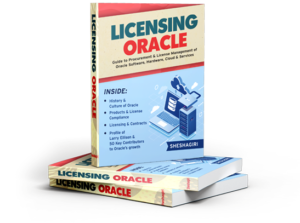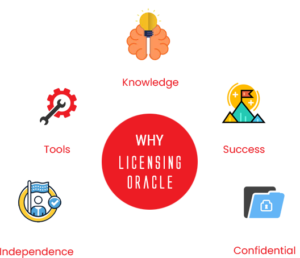The Oracle Java license change has become a significant concern for developers, organizations, and businesses relying on Java technology. With the transition in licensing terms, many have been left questioning how it affects their projects and budgets. In light of this, the demand for Java free alternatives has risen sharply as companies strive to reduce costs and maintain compliance. This article explores the implications of the Oracle Java license change and highlights viable Java free solutions.

Oracle Java License Change Explained
In 2019, Oracle shifted its licensing model for Java SE (Standard Edition). Before this change, Java was free to download and use for personal and commercial purposes. However, with the new terms, Oracle introduced a subscription-based model, which requires users to pay for commercial use of Java SE.
This change specifically affects the Oracle JDK (Java Development Kit), which had been the go-to distribution for many years. Oracle's move now means that businesses deploying Oracle Java in production environments must purchase a commercial license, incurring annual costs. These costs vary based on the number of users and processors, and for large enterprises, they can become substantial.
Why Did Oracle Change the Java License?
Oracle's rationale for changing the Java license lies in their aim to generate more revenue from a widely used platform. Java is one of the most popular programming languages globally, and Oracle saw an opportunity to monetize its usage more effectively. The subscription model also provides Oracle with a more predictable income stream while encouraging users to adopt newer versions of Java, as support is only offered for the most recent releases.
Despite Oracle's intentions, this change has prompted a major shift in the Java ecosystem. Developers and organizations now face the challenge of reassessing their Java usage and evaluating whether they can continue using Oracle Java or need to explore Java free alternatives.
How the Oracle Java License Change Affects You
If you’re a developer using Java for personal projects or learning purposes, you can still access Oracle Java free of charge. However, for commercial applications, the new license model applies. This means that if your organization uses Oracle Java in production, testing, or development environments, it must pay for a license unless an exemption applies.
Non-compliance can lead to legal and financial risks. Oracle has been known to audit businesses to ensure compliance with their software licensing. Therefore, it is crucial for IT departments and software managers to understand their Java usage and make informed decisions about licensing.
Rise of Java Free Alternatives
Fortunately, Oracle is not the only provider of Java. The open-source nature of Java allows other organizations to build and distribute their own JDKs, which are completely Java free and suitable for commercial use. Here are some of the most popular Java free alternatives:
1. OpenJDK
OpenJDK is the official reference implementation of the Java platform, maintained by the Java community. It is completely open-source and free for commercial and personal use. Many large companies have adopted OpenJDK as their default Java environment.
2. Amazon Corretto
Amazon Corretto is a Java free distribution backed by Amazon. It is based on OpenJDK and is designed for performance and security. Amazon uses Corretto internally, which shows its reliability and stability. Corretto receives regular security updates, making it a solid choice for production environments.
3. Adoptium (formerly AdoptOpenJDK)
Adoptium provides prebuilt binaries of OpenJDK through the Eclipse Foundation. It offers long-term support (LTS) versions and is one of the most popular Java free alternatives. Many companies trust Adoptium for enterprise applications because of its robust support and transparency.
4. Zulu OpenJDK by Azul Systems
Zulu is another reliable Java free distribution built on OpenJDK. It offers certified builds for various platforms and is known for its performance optimizations. Azul also provides enterprise support for organizations requiring assistance.
How to Migrate from Oracle Java
Migrating from Oracle Java to a Java free alternative is a straightforward process, but it requires careful planning. Here are the steps to consider:
Assess Your Java Usage: Determine which applications rely on Oracle Java and whether those environments require a licensed version.
Choose a Compatible JDK: Select a Java free distribution that aligns with your needs. Most alternatives support the same APIs and libraries as Oracle Java.
Test Your Applications: Before switching in production, thoroughly test your applications with the new JDK to ensure compatibility.
Deploy and Monitor: Once testing is successful, deploy the new JDK across your environments and monitor for any issues.
Benefits of Going Java Free
Choosing a Java free alternative offers several advantages:
Cost Savings: Eliminate licensing fees associated with Oracle Java.
Compliance: Avoid legal risks and maintain peace of mind regarding audits.
Flexibility: Select from a variety of JDK distributions that suit your specific needs.
Community Support: Leverage the active Java community for troubleshooting and updates.

Final Thoughts
The Oracle Java license change has created a shift in how organizations use Java. While it imposes new costs and responsibilities, it also opens the door to exploring robust Java free alternatives that provide similar, if not better, functionality without the licensing burden.
Companies must evaluate their Java usage carefully and take action to avoid unnecessary expenses. By migrating to a Java free solution like OpenJDK, Amazon Corretto, or Adoptium, you can future-proof your applications while staying within budget and maintaining full control of your Java environment.
In today’s evolving tech landscape, understanding the Oracle Java license change and transitioning to a Java free model is not just a cost-saving move—it's a strategic necessity.
Comments on “Understand the Oracle Java License Change and Explore Java Free Alternatives”